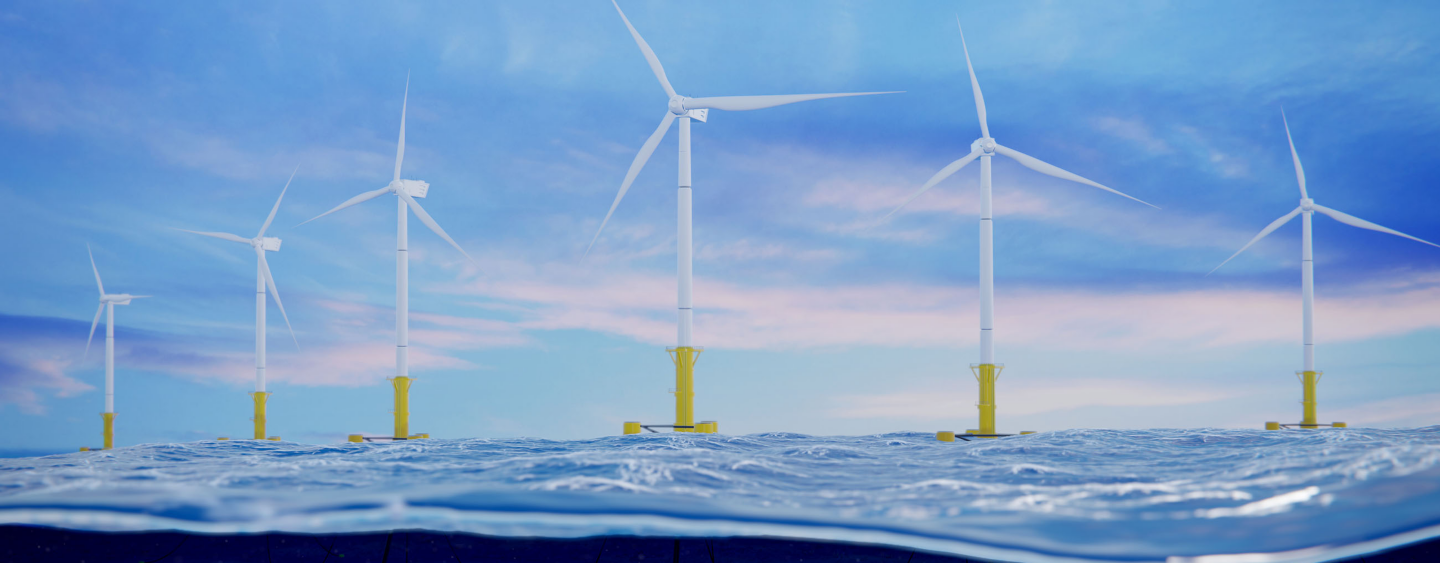3 min read
China's first floating wind turbine commissioned with unique dry-type transformer from Hitachi Energy

Hitachi Energy has developed and supplied first-of-its-kind Vacuum-Cast-Coil (VCC) dry-type transformer that is specially designed for floating, off-shore wind turbines. As a part of their recently announced portfolio of transformers for floating applications, these transformers will support in unlocking the vast potential of off-shore, floating, wind-power generation, thus enabling the transition to a sustainable energy future.
This unique transformer by Hitachi Energy has been installed in China's first floating wind turbine called ‘Sanxia Yinling Hao’ (Three Gorges Lead). This 5.5-megawatt wind turbine has been successfully put into operation in December 2021 at Yangjiang wind farm - off the coast of south China’s Guangdong Province. It was developed by China Three Gorges and Mingyang Smart Energy, a leading wind turbine manufacturer in China. The transformer installed in the wind turbine steps-up the electric voltage of the power generated by the wind turbine to enable its transmission to the offshore booster station. Thereby, the transformer becomes a key enabler in reliable transmission of clean, renewable, and sustainable energy.
China is accelerating the transition to a low-carbon energy to meet the country’s carbon neutral targets. China plans to build over 1,200 GW of solar and wind power by 2030, nearly 2 times the current size1. Due to the abundant, untapped, offshore wind resources, the offshore wind power is expected to grow at a very fast pace in China.
Currently, the majority of potential offshore wind resources are in water bodies that are more than 60 meter deep. This is beyond the reach of traditional, offshore wind power platforms. Therefore, the solution is floating wind turbines, which have more flexible and cost-effective design. These can vastly expand the scope and use of offshore wind power. However, the harsh environments around floating wind turbines, including 10 times more vibrations compared to fixed wind turbines, pose huge challenges to the operation of the transformer inside a wind turbine generator.
Standard dry-type transformer by Hitachi Energy (for representation only)
The VCC dry-type transformer designed by Hitachi Energy is a compact, moisture-proof solution that is best suited to operate even with heavy and frequent vibrations. It easily fits inside the wind turbine and can withstand the extreme environments on the floating platform which itself is designed to meet challenges like typhoons and extreme waves in the South China Sea. Moreover, due to its complete dry operation there is no risk of oil leakages, thus enhancing safety for people and the surrounding environment.
“This floating wind turbine is a key breakthrough in offshore wind power industry, effectively supporting the development of offshore wind resources,” said JianHua Zhang, Head of Transformer business for Greater China at Hitachi Energy. “Hitachi Energy has specially designed a series of transformer products for floating offshore substations and wind turbines. We are glad to join hands with Mingyang in supporting China’s first floating platform and contribute to China’s clean energy transition with our pioneering technology.”
This floating offshore wind turbine adopts semi-submersible foundation and can withstand typhoon up to level 17. It is capable of generating up to 40 million kWh of electricity per year at its full capacity. This is equivalent to providing green and clean electricity for up to 11,000 households in China2.
Notes:
1. Source: China National Energy Administration
2. Source: China Three Gorges Group news